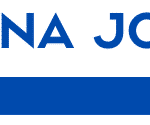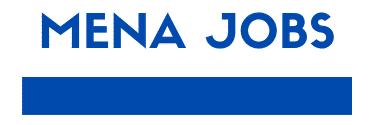
Christian Aid
About Christian Aid
Christian Aid is a Christian organisation that insists the world can and must be swiftly changed to one where everyone can live a full life, free from poverty. We work globally for profound change that eradicates the causes of poverty, striving to achieve equality, dignity and freedom for all, regardless of faith or nationality. We are part of a wider movement for social justice. We provide urgent, practical and effective assistance where need is great, tackling the effects of poverty as well as its root causes.
We are the international development and advocacy agency for 41 sponsoring churches in Britain and Ireland, and part of the church community worldwide. The work we do reaches people and communities of all faiths and none. The way we operate is through a partner model, as we believe we can achieve even more when we team up with others who are already working within the communities we support.
About Ukraine crisis humanitarian appeal
The full-scale invasion of Ukraine in February 2022 by Russian forces caused widespread destruction and displacement, with needs assessments at end of 2023 showing 18 million people in need of assistance inside the country and over 8 million Ukrainians displaced across borders. The situation remains extremely fragile, with active fighting and air raids daily. There have been regular attacks on the energy infrastructure which continue to cause destruction leaving millions of people across the country with no electricity, disrupting water supply and heating systems. Attacks have also damaged other civilian infrastructure, including homes, and have killed and injured civilians.
Prior to 2022, Christian Aid did not have presence in the region, however, due to the scale of the crisis being one of the largest forced population displacements in recent decades and the outpouring of support from the UK public, the decision was made to respond to the urgent and immediate needs of the crisis-affected people in Ukraine and neighbouring countries. CA initially carried out humanitarian programming with international organisations and has slowly transitioned to a more diverse and localised response.
In line with sectoral standards for assessing humanitarian action, Christian Aid is looking for a consultant to carry out an evaluation. The evaluation will seek to test and demonstrate the extent to which the designed project resulted in action that was in line with both Core Humanitarian Standard and with project-level objectives, specifically utilising some key project components as an entry point.
Objective
- The extent to which funded multi-sectoral projects enabled affected communities to improve their access to relevant core needs and reduce vulnerabilities and promote recovery;
- The extent to which the CA partner approach and the practices implemented as a result provided a context for a higher quality response and allowed the partners to strengthen their capacity; and
- The extent to which the assistance was delivered via processes in line with the Core Humanitarian Standard.
Where relevant, and promoting the inclusion of community voices, the evaluation will approach the projects also considering how diverse and local partnership and innovative, community-led solutions (as two key elements of this programme) have added value across the programme.
These key queries will be responded to via the application of the Core Humanitarian Standard as an evaluation framework, assessing the project against relevant requirements of the commitments while prioritising community experience in lieu of organisational process.
Questions may include (in line with Core Humanitarian Standard requirements):
- To what extent the second phase of the DEC programme met community needs and priorities in a timely and informed manner,
- To what extent communities are more resilient and have increased ownership of the project,
- How or if negative impacts were avoided or mitigated,
- To what extent the funded responses were in coherence with other projects implemented both by partners and other organisations,
- How community feedback was incorporated to project design,
- How effectively resources were used and how risk was mitigated,
- How the project and the partner-led approach through CAID
- ensured diversity and inclusion of community voice throughout the project,
- Led to or contributed to a higher quality of response,
- How community members interpreted their right to safe reporting and safeguarding,
- To what extent communities were treated with respect.
Timeframe and Deliverables
The evaluation will take place in the final months alongside the close of the project (February 2025), with access to communities and stakeholders planned accordingly, and especially alongside any endline data collection planned by the implementing partners.
Proposed activities include:
- Inception report outlining methodology and workplan
- Debrief meeting with stakeholders following the data collection period to present initial reflections.
- Draft Evaluation report (of not more than 25 pages)
- Verification of findings
- Final Evaluation report and Annexes (The deadline for a final draft is the 1st March 2025), as well as a 5-page shareable summary “key lessons/key achievements” synthesis document.
- Final Evaluation findings shared with CA, Partners, DEC, and relevant participants in the data collection.
- Participation as reasonable in the sharing and dissemination plan (post 1st March 2025.)
Location and Travel involved
The project will be carried out in Ukraine and all required transportation within Ukraine will be fully borne by the consultants.
Requirements
Your proposal should cover but not limited to the following elements:
- Organisational
- Technical approach, including proposed evaluation methodology
- Availability throughout the evaluation period
- Overview of yourself/your organisation and details of your capabilities, including method to collect primary data from Ukrainian communities
- Proven experience in working in Ukraine and/or its neighbouring countries and a working knowledge of the context
- Proven experience of conducting (leading or co-leading) crisis response evaluations (we will request 1 sample of previous similar work)
- Demonstrable knowledge and understanding of the humanitarian eco-system
- Proven experience of working with UN agencies and/or INGO, preferably who have a partnership approach to their work
- Working knowledge of the Core Humanitarian Standards, Charter for Change, and the Grand Bargain
- Experience in the use of participatory research methodologies, and restricted methodologies in fragile contexts
- Experience and understand of responsible data management
- Language skills
- Fluent in Ukrainian (at minimum, the research team members must be able to communicate with Ukrainian)
- Excellent report writing and analytical skills, including proven ability to form concise, actionable recommendations
- Details of your safeguarding and ethical policies/considerations and how they will apply to your work on this project
- Audited financial statements for the last three years (applicable for company only)
- Detailed cost with breakdown, including travel cost, and payment schedules (if applicable)
- Two referees
- Please complete Document 5 – Supplier Reference Check Authorisation Form to provide contact details of two referees who must be your previous or current clients
- Referees will be contacted if you/your organisation is shortlisted
For any candidates who do not feel that meet the essential requirements as written, but can demonstrate these competencies in other ways, please do apply.
Detailed specifications and forms can be downloaded here.
Clarification questions regarding the tender documents or process must be made in writing by email to [email protected] by 1pm 10 September 2024.
How to apply
Completed tenders must be sent to [email protected] by 23:59 BST 20 September 2024 and must include:
- Your Proposal
- Supplier Reference Check Authorisation Form
- Signed Bidder Declaration Form

